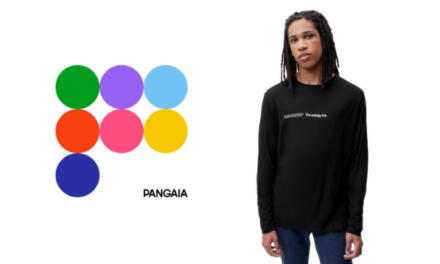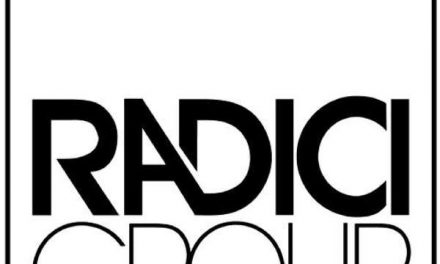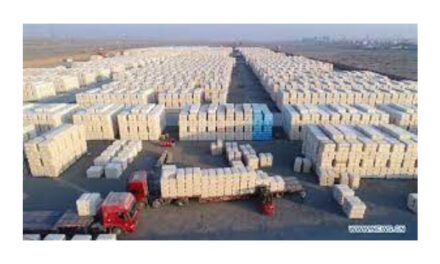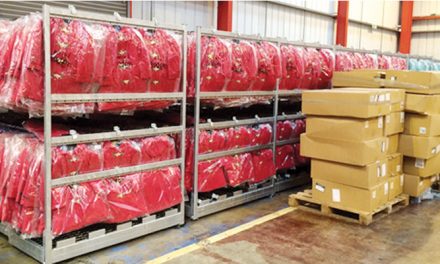As one of the first actions under the new cooperation, EuroCham will set up a public training program with CGTI, focused on sustainable textile sourcing, Occupational Safety and Health (OSH) and compliance. EuroCham also coordinates support of the German development agency GIZ under the Fabric program, a multi-year program promoting sustainability and social responsibility in the textile and garment industry in Asia, to fund the training initiative.
Other areas of cooperation include addressing sustainable production-related issues and environmental awareness in the production chain, exploring opportunities of the industry 4.0 and assisting European brands with responsible sourcing from Cambodia.
Welcoming the new pact, Tassilo Brinzer, Chairman of EuroCham Cambodia, outlined how EuroCham represented a good mix of large European fashion brands which play a crucial role in Cambodia’s garment and manufacturing industry, as well as local, innovative SMEs, factories and peripheric businesses such as auditing and logistic firms focused on the garment industry and its exports. “There is thus a strong synergy across our membership base, which also makes us a powerhouse that is capable to drive the interests of the industry and its stakeholders forward,” he said. “Forward towards more sustainable practices, greener production, circularity, higher skills and higher quality goods benefiting Cambodia’s economy. Embracing new initiatives such as supply chain due diligence legislation in the European Union will of course be crucial to leverage export opportunities.
“We are glad that GMAC, as the main industry organization, is our companion on this important journey. We are looking forward to a fruitful cooperation and to add a European perspective to the wider Cambodian garment, footwear and apparel industry.”
The cooperation between GMAC and EuroCham also anticipates the upcoming release of the Royal Government of Cambodia’s new five-year development strategy for the garment, footwear and travel goods industry which is expected to transform the industry towards environmental sustainability, resilience, and a focus on high value and unique products, with high competitiveness.
With an export value of $11.38 bn in 2021, of which a large share continues to go to Europe, Cambodia’s garment and footwear sector remains the key player in the Cambodian economy.
“Cambodia and the European Union have been main trading partners,” Kong Sang, Chairman of GMAC added. “The success and exponential export growth of our industry can be attributed in large part to the preferential market access of the European Union granted under the EBA scheme. It’s important to continue to maximize the economic benefit through more growth potential. The MoU signed is an invaluable partnership to further strengthen the industry’s competitiveness through capacity building in many areas and joint advocacy to influence relevant policies.”
Established in 1996 due to the increasing need for the garment industries to stand together with a unified voice, GMAC has become one of the most active and prominent trade associations in the country, representing, promoting and safeguarding the rights and interests of its members. It currently has more than 600 exporters as members that directly employ more than 700,000 workers in total.
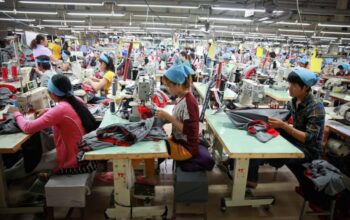 The European Chamber of Commerce in Cambodia (EuroCham Cambodia) and the Garment Manufacturers Association in Cambodia (GMAC) have signed a new Memorandum of Understanding that will address sustainable production-related issues, enhance sourcing structures and explore industry 4.0 opportunities. Defining a clear set of joint actions by the two associations, the aim of the MoU is to foster a closer cooperation between the two associations and their members and to support European garment companies and fashion brands in Cambodia, but also to promote Cambodia’s opportunities on the European stage both in Europe and in ASEAN. Symbolically, the MoU was signed recently at the facilities of the Cambodian Garment Training Institute (CGTI) in Phnom Penh.
The European Chamber of Commerce in Cambodia (EuroCham Cambodia) and the Garment Manufacturers Association in Cambodia (GMAC) have signed a new Memorandum of Understanding that will address sustainable production-related issues, enhance sourcing structures and explore industry 4.0 opportunities. Defining a clear set of joint actions by the two associations, the aim of the MoU is to foster a closer cooperation between the two associations and their members and to support European garment companies and fashion brands in Cambodia, but also to promote Cambodia’s opportunities on the European stage both in Europe and in ASEAN. Symbolically, the MoU was signed recently at the facilities of the Cambodian Garment Training Institute (CGTI) in Phnom Penh.

